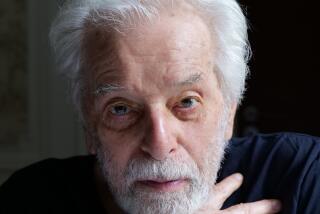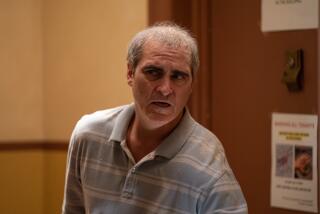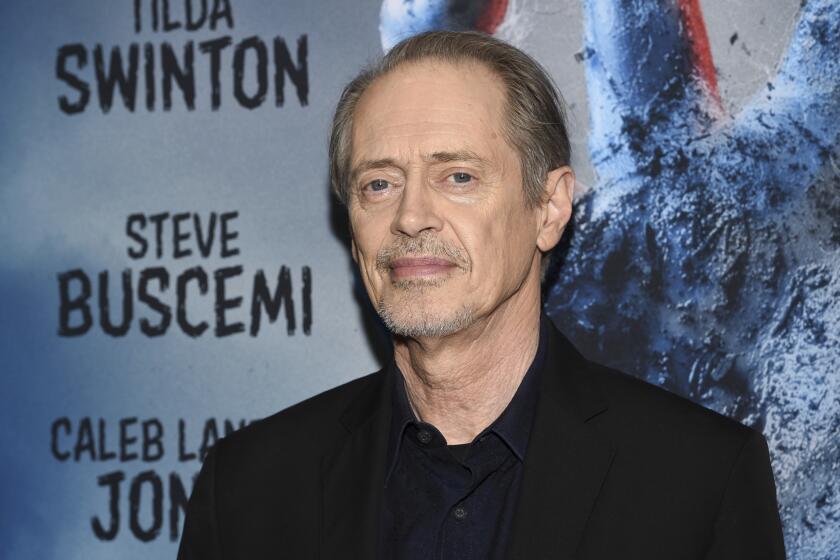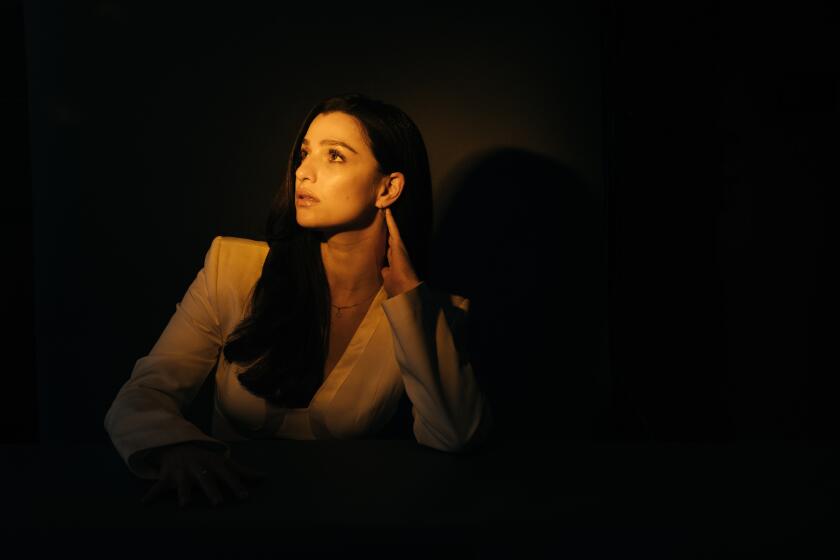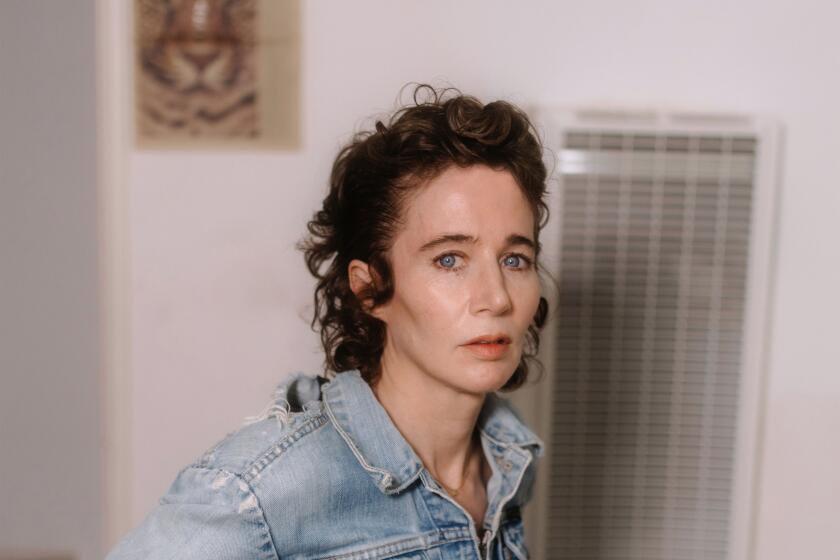Before altering states, Russell did BBC docs
If ALL you know of Ken Russell is his penchant for rococo imagery -- the goat-headed, multi-eyed Christ of “Altered States,” say, or Roger Daltrey riding a giant phallus in “Lisztomania” -- it might come as a shock to discover he has his origins in documentary. But the new DVD set out Tuesday, “Ken Russell at the BBC,” which collects six of the films he made for British television in the 1960s, shows Russell working profitably, and sometimes brilliantly, within the constraints of arts programs like “Monitor” and “Omnibus.”
Where the films in the set are concerned, “documentary” is a relative term. There is little in the way of unstaged footage and only one on-camera interview. The earliest, 1962’s “Elgar,” is an illustrated lecture, with mute figures standing in for the classical composer and his contemporaries.
Bound by “Monitor’s” house style, Russell was not allowed to have his actors speak, nor was he allowed to shoot them in close-up. Instead, Russell relies on the tools of a silent-film director, using images of Elgar’s bicycle whipping through the Malvern Hills to suggest the inspiration for his rolling melodies.
As the 1960s progressed, Russell began to play more aggressively with the documentary form. In “The Debussy Film,” broadcast in 1965, the dramatic portrait of the French composer’s life serves as a film within the film, framed by making-of sequences with Vladek Sheybal as the ostensible director. On-screen and off-screen actions run in parallel, so that the tragic romance between Debussy (Oliver Reed) and his mistress, Gaby Dupont (Annette Robertson), is echoed by an unhappy flirtation between the actors who play them.
Dispensing with voice-of-God narration, Russell gives exposition to his on-screen proxy, who delivers it by way of briefing his actors on the scene they are to shoot. “The Debussy Film” bears the obvious imprint of “8 1/2 ,” but Russell comes by the influence honestly: Fellini once called himself “the Italian Ken Russell.”
Although Russell’s interest in composers is paramount, he engages artists from other disciplines: the dancer Isadora Duncan in “Isadora,” the painter Henri Rousseau in “Always on Sunday,” the painter and poet Dante Gabriel Rossetti in “Dante’s Inferno.” Russell loves his mad geniuses (and might qualify as one himself), but he is careful to place his solitary visionaries in the context of the friendships that sustained them.
The films break down into a series of off-kilter two-handers. Rousseau is sustained by the surrealist playwright Alfred Jarry (played, fittingly enough, by Robertson with a dubbed male voice), Rossetti by the other members of the Pre-Raphaelite Brotherhood. Romantic ties, on the other hand, invariably bind and eventually choke.
Duncan is undone by her marriage to Soviet poet Sergei Yessenin, a violent drunkard, and Rossetti’s poetry career is temporarily halted when he buries his poems in his wife’s coffin. The image of the poems being exhumed, along with her desiccated corpse, is so much to Russell’s liking that he repeats it.
In “Song of Summer,” Russell’s interest in collaboration comes to the fore. Christopher Gable, a dancer with no previous acting experience, plays Eric Fenby, the budding composer who sidelined his own career to help the paralyzed maestro Frederick Delius realize his last great works. The fact that Delius, for all his musicality, can barely carry a tune makes transcription arduous, but Delius has no patience with his eager amanuensis, unleashing a scalding torrent of words for each minor misstep.
Although they eventually arrive at a workable method, theirs is an uneasy truce at best, one that exacts a heavy price from the delicate Fenby, who suffered a nervous breakdown after Delius’ death.
“Song of Summer” is the most stylistically subdued of Russell’s biographies, but it is also the richest, an unflinching account of the price of creation. Russell calls it his favorite of all his films, and it’s easy to see why -- although it’s hard to square the director’s fondness for “Song of Summer’s” melancholy naturalism with the gaudy excess of his later films.
Russell might have been chafing at the restraints of television, but he produced some of his most inspired work inside the box.
More to Read
Only good movies
Get the Indie Focus newsletter, Mark Olsen's weekly guide to the world of cinema.
You may occasionally receive promotional content from the Los Angeles Times.
